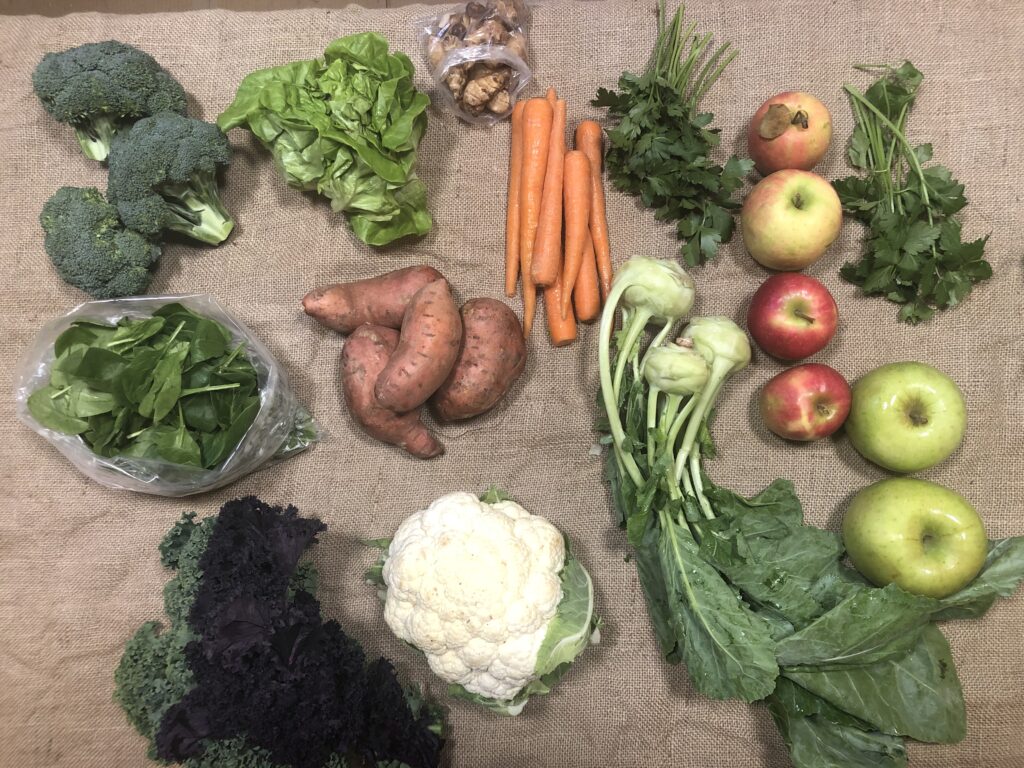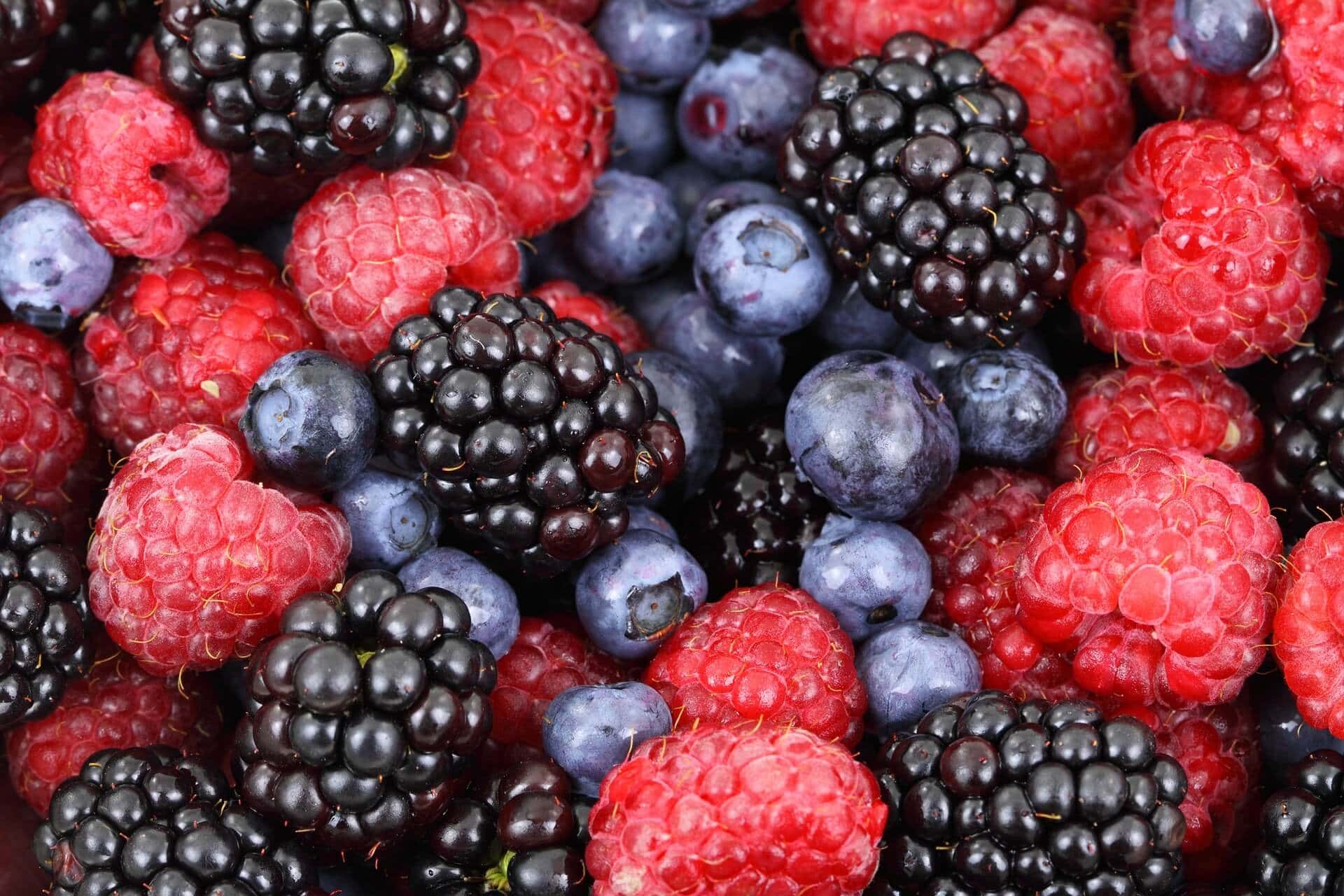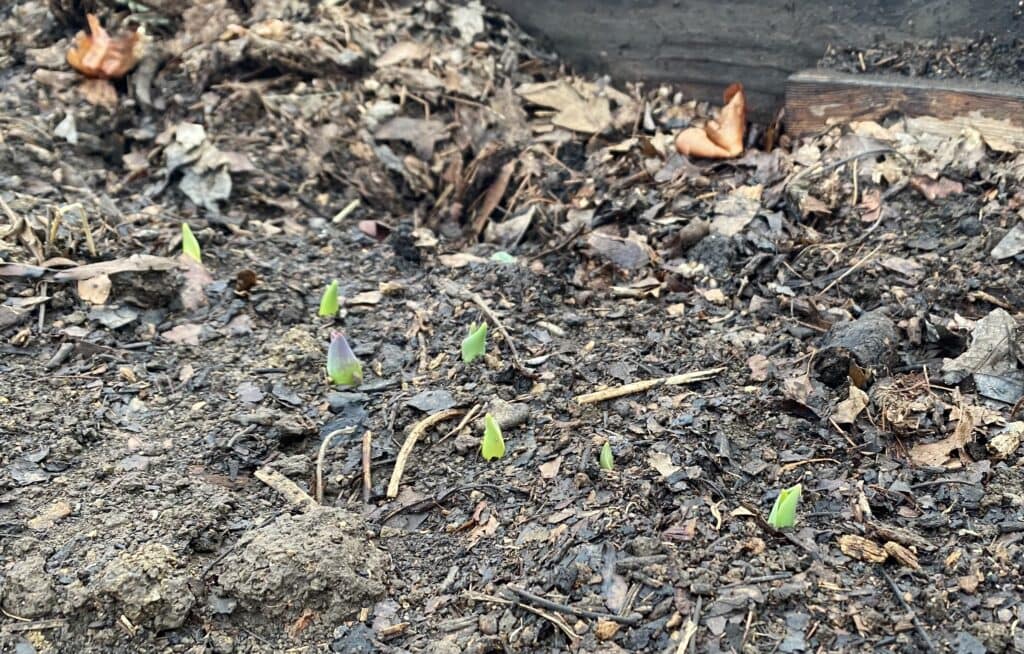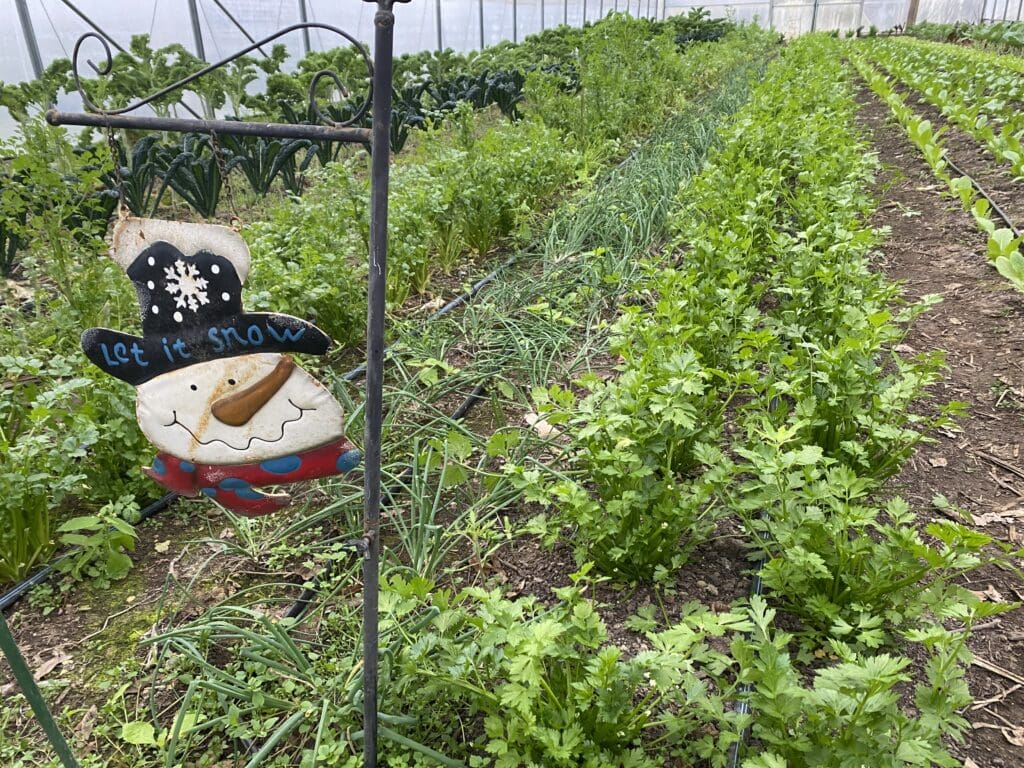This post may contain affiliate links. Probably doesn’t, but it might. It doesn’t cost you anything extra but if you use these links to buy something, we may earn a commission.
You have heard about Community Supported Agriculture, and you think it might be a good thing to do. You are wondering, though, is this really cost-effective? Does it really make a difference to how you feel by eating local produce? And does it really make eating healthy easier? In my experience, the things that are good for us are the things that are harder to do. Let’s face it, our modern culture is geared around non-healthy eating: eating out, fast foods, packaged grab and go foods, all loaded with carbs, sugar, salt, and fat. Those are not the foods that are recommended for your cardiovascular health, are they?
The answers are clearly documented—yes, it makes a huge difference to your health and to your budget to be part of a CSA program. Eating well is a cornerstone of good health., right up there with drinking water and walking every day. Eating the CSA way is actually a significant shift to improving your lifestyle, one meal at a time. A CSA also helps your budget. How does this work?
Fresh produce

Nutritionists now recognize the health hazards of ultra-processed foods. What are processed foods, you ask? Basically, anything that comes in a box or a bag and has been changed from its original shape or condition. The original form of the food holds the most nutritional value.
For example, when you eat a tomato, it is a single ingredient with no added sugar or salt. If you eat spaghetti sauce from a container, there is added sugar, high levels of sodium, and a long list of ingredients. Sugar, in particular, is linked to the high levels of diabetes incidence in the world. Your body can digest the single ingredient items far better than the long-list-of-ingredients items.
Your CSA share provides you with a great array of fresh produce. A Community Supported Agriculture program provides you with what is being harvested on the farm each week when you commit to participating in a program at your local farm. With your commitment, the farmer can plan how much of each crop to plant. The CSA typically offers fresh produce that has been grown without pesticides or harmful chemicals. This means you can consume nutrient-rich food that will help you maintain good health. These are foods that are not processed into another form.
By getting a CSA, you pick up your share each week and then you have healthy food in the house. The next step is to get used to using up those fresh items every day until they are gone. Then you are ready for the next pick up.
Cost effective
Joining a CSA program can be an affordable way to buy your groceries, as many CSA members report they buy less of packaged food since they have great-tasting produce to eat instead. In most cases, a CSA share costs less per week than buying produce at a grocery store. This can help you reduce your grocery expenses and stay within budget. Many CSA programs have bonus produce which is given to CSA members if there is an over-abundance of a crop. As you learn to store extra produce, whether freezing, canning, or drying, you help your future budget as well.
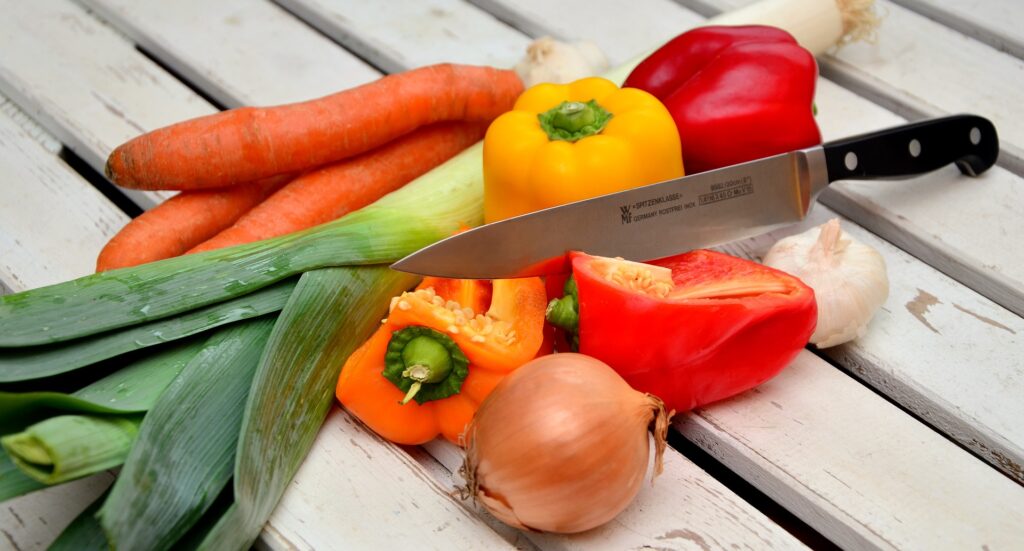
If you commit to using your CSA vegetables each week, then you eat at home first and save eating out until you have finished the fresh produce. You will find that you have reduced the number of times that you eat out, which will improve your budget as well as your health.
Variety of produce
Most people eat the same 15 foods over and over again. A CSA provides a wider of variety of foods, some of which you may never have tried before! Each season brings a new selection of fruits and vegetables, which gives you the opportunity to expand your food repertoire. Some of these you may never see in a supermarket. Eating different foods and colors of foods helps you stay healthy. The extra special part of eating the CSA way means you don’t miss out on the short season of asparagus or Italian eggplant or any specialty crop. As soon as that crop is available, it goes in the CSA share.

Eating a variety of foods usually means you increase the color variety as well as actual product variety. “Eating the rainbow” is a great way to make sure you get all the minerals, phytonutrients, and vitamins that your body needs.
DIY Meals
Since you will have actual food in the house from your CSA, you will cook more meals at home. This gives you better nutrition, with no added sugar and reasonable levels of sodium, and saves you a lot of money, as one restaurant meal can cost as much as an entire week’s work of produce. Learning to cook more meals gives you the opportunity to develop a creative culinary talent by cooking with high quality ingredients. Your mind is healthier as well as your body. You will now eat your vegetables on a regular basis, which is only good for your health! Cooking your own meals with fresh ingredients has the double benefit of saving money and boosting your well-being.
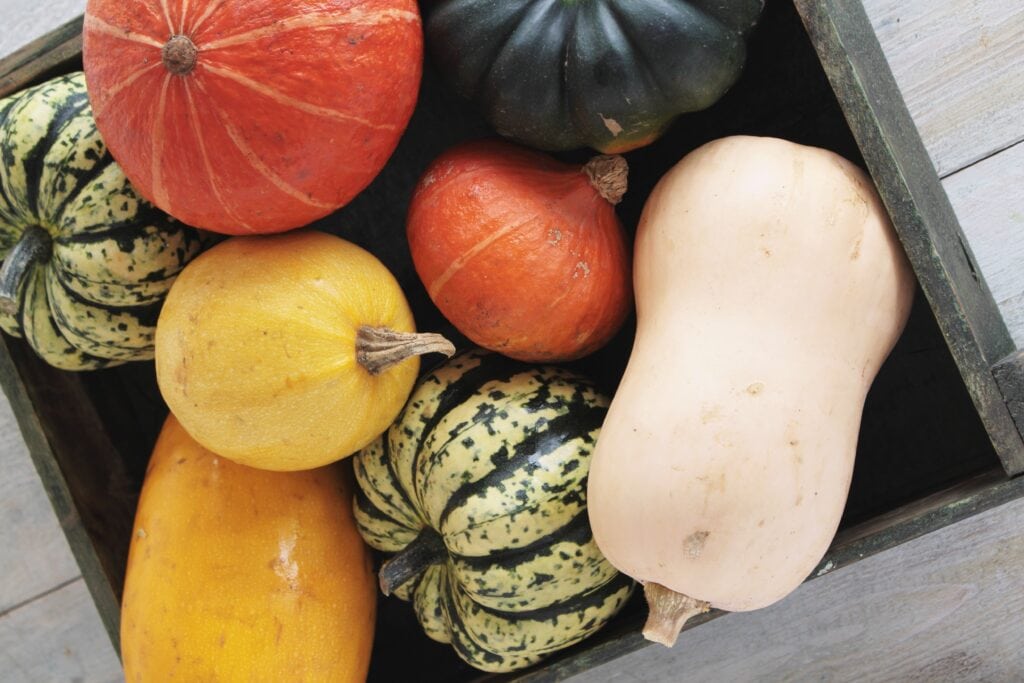
I promise you that this is worth the effort. It is a big shift to change from calling for take out to fixing a meal, but it actually does not take any more time. What it does take is mental energy to say yes, I will make a stir fry or a frittata or a tray of roasted vegetables. Once you have 3 or 4 quick recipes that can be adapted to almost any vegetable, it is a lot easier to talk yourself into fixing a meal rather than caving for take out. Enjoy your dining out, but make home meals the usual. You will find this change is worth the effort!
Community involvement
One of the markers for longevity of lifespan is having social interaction. You will have the opportunity when you pick up your farm share to meet others who are interested in sustainably grown food and healthy eating. Many CSAs have a private Facebook group where members can trade recipe ideas on how to use items in the share that week. In addition, some farms offer volunteer opportunities or other activities for CSA members, giving you the chance to learn more about how your food is grown. You connect with others who share similar interests. In addition, you have the opportunity to learn who is growing your food and how the produce is grown. You will make connections with your farmers and have a better understanding of what grows in your area and when.
Every day we have customers connect with each other when they pick up their CSAs. They swap recipe ideas and then go on to talk about family, life, and community. The connections are real and vital. Everyone you know eats something every day. When you talk with people who are eating fresh vegetables and fruits and are committed to improving their health through better eating, you find your support group.
Conclusion
Improvement in your health happens over time, as you routinely eat your fresh, sustainably grown produce. Your body cleans out the toxins, adds in the nutrients, and you can find that you have more energy. Many CSA customers report losing 10 pounds or more over the course of the season, just by eating a salad or some greens every day. Other CSA members report improved blood pressure. Your grandmother was right—vegetables are good for you! A CSA is a great way to make sure you have good food in the house when you are hungry.
What criteria should you look for in a farm for your CSA?
Look for a farm that has an extended growing season and a diversity of crops. You want your local farm to help support you in your quest to expand what you eat and to eat more seasonally, so you want to be able to count on them.
When you are considering a Community Supported Agriculture program, look at how long the farm has provided CSAs to the community. A farm with 10 years’ experience or more has worked out most of the problems that can occur and will be able to provide you with a share every single week.
You want to check out how the farm grows. They should be transparent about growing methods; pesticide-free, chemical-free, organic, non-GMO, sustainable, conventional, IPM. Whatever way they grow, you should be able to find it out.
Look for how long the farm has been there. A farmer who has been growing for over 10 years has learned how to deal with the problems that crop up. A farmer that has been growing for over 20 years has learned how to make farming sustainable for the farm, the farmer, and the customer.
One of your best sources for finding a CSA program near you is to search on Local Harvest at https://www.localharvest.org/wilmington-de. At the top, put your location in the search bar and a variety of options will appear. You can explore the various options and see what is convenient to you.
One more thing…
If you are in Philadelphia, PA, or Wilmington or Newark, DE, then you can pick up at one of our drop off locations or at the farm. We welcome you to check out our CSA program by visiting the farm or online here: https://highlandorchardsfarmmarket.com/csa/. If you are not near us, then I encourage you to find a farm in your community and to support your local farmer. Thank you for your interest and support of local sustainable agriculture!
Come see us to eat fresh, eat local, and eat well!
Happy eating the CSA way!
~Ruth
Highland Orchards Farm Market, 1431 Foulk Road, Wilmington, DE 19803
About Ruth: I am the 6th generation of my family to farm here at Highland Orchards in Delaware. I grew up here, learning from my grandparents and parents how to plant, weed, harvest, and store fruits, vegetables, and flowers. My graduate degree is in history, so I love to research anything and everything. I have taught at all levels, including university and continuing education. I have done everything on the farm from planting to harvest to selling to social media. I love that I can share knowledge with people through books, blogs, and courses.
Additional resources:
To see the kinds of topics pursued by farmers who want to grow sustainably, check out Future Harvest Chesapeake Alliance for Sustainable Agriculture at https://futureharvest.org/. They are serious about using sustainable agriculture to make big changes in our climate and our world.
PASA Sustainable Agriculture also hosts a variety of resources and workshops for farmers to create ecologically sound farms. https://pasafarming.org/programs/
